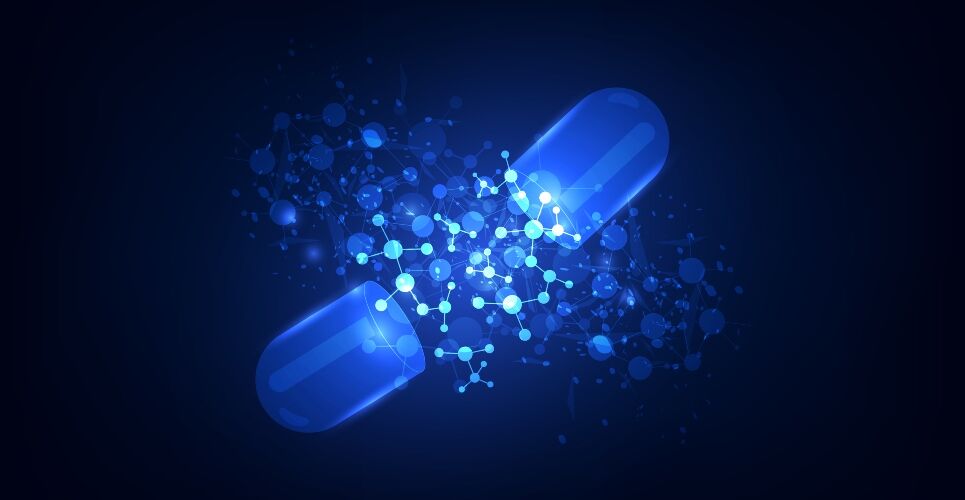Biological drugs are playing an increasingly important role in the management of multiple health conditions, but, to date, the innovations have only scratched the surface of their potential. Here, Professor Afzal R Mohammed, professor of pharmaceutics at Aston Pharmacy School, shares his perspective on the challenges and promising advances in biological drug delivery.
In the last decade, there has been a remarkable evolution in pharmaceutical drug delivery, steering away from chemically synthesised drugs to embrace a burgeoning category known as biological drugs or biologics.
This shift holds the potential to revolutionise the treatment landscape for prevalent conditions affecting millions worldwide, including rheumatoid arthritis, diabetes, autoimmune diseases and specific cancers.
Notably, 50% of the new drugs approved by the FDA in 2022 were biologics, underscoring the magnitude of this transformation.
However, biologics, being inherently delicate, present a unique set of challenges in terms of mass adoption. To pave the way for widespread use of these innovative drugs, the pharmaceutical industry must identify secure, efficient and cost-effective methods for their delivery.
Challenges in delivering biological drugs
Unlike their chemically synthesised counterparts, the previous generation of drugs was largely uniform and easily administered. Biologics, on the contrary, are intricate, targeted and specific, offering enhanced efficacy with fewer side effects. Their complexity renders them both more vulnerable and more potent.
Biological drugs often require precise storage conditions, for example most require refrigeration at exact temperatures. They also demand specific individualised doses, typically administered through intravenous injection.
Consequently, they are predominantly handled and dispensed in medical facilities, further complicating the distribution process, which in turn makes global adoption of these drugs much more difficult.
Addressing these challenges is pivotal for the pharmaceutical industry. While biological drugs boast superior effectiveness with fewer side effects, their delivery logistics remain a hindrance, making them more expensive and challenging to distribute, particularly in regions with unreliable refrigeration and an experienced medical infrastructure.
If these challenges of storage, transportation and delivery can be solved in a safe, effective and cost-efficient way, it will unlock a new and exciting future for the medical and pharmaceutical worlds.
Promising advances in drug delivery
In the quest for a breakthrough, two particularly promising advancements are gaining traction: liquid-based delivery systems and inhalation methods.
- Liquid-based delivery systems
Traditional oral delivery methods for synthetic drugs, such as the buccal system, encounter limitations when applied to biological drugs. This is because biologics tend to be much larger compounds, which are harder to absorb in the gut.
Novel approaches employing a combination of polymers and lipids to craft a liquid-based delivery system for biological drugs are currently being explored by companies such as Max Bio+.
These innovative system create nanostructures that disperse biologics in an aqueous solution. The result is the creation of nano-particulates that can permeate across multiple cell layers into the bloodstream via the buccal route.
In addition, this unique combination of polymers and lipids has been found to create a synergistic effect with biological drugs, increasing their potency.
The potential applications are extensive, offering a stable oral liquid form for crucial drugs like insulin. People with diabetes, for instance, could replace injections with a simple drink of insulin when needed.
Additionally, this approach could be extended to drugs that are traditionally insoluble in water, such as cannabidiol (CBD), paving the way for more potent and palatable CBD-based beverages and foods.
- Inhalation delivery systems
Inhalation systems present another promising avenue for biological drug delivery.
Inhalers for conditions such as asthma have been around for years. However, formulating drugs for these devices typically requires a lot of energy and, therefore, heat as well as solvents.
While this isn’t a problem for most synthetic drugs, biological drugs are much more sensitive. Therefore, traditional inhalation manufacturing methods don’t lend themselves to formulating biologic drugs.
Dosage is also an issue when it comes to delivery via inhalation. For more potent or high-dose drugs, it can be a challenge to ensure that the right dose is delivered and, importantly, absorbed in the lungs. If the molecule is too light, it will simply be exhaled; if it’s too heavy it might not be absorbed effectively.
Aston Particle Technologies is revolutionising this space by employing isothermal dry particle coating technology to blend potent biologics into inhalation formulas at ambient temperatures, eliminating the need for additional heat and solvents.
This approach simplifies the formulation process, accelerates drug development timelines and reduces costs. Moreover, its energy-efficient and solvent-free nature aligns with environmentally conscious practices.
The future of drug delivery
We stand at the precipice of a transformative era in biological drugs that holds the promise of enhancing lives globally. Innovations in drug delivery have the potential to make the transportation, handling and storage of biologics safer, more straightforward, and cost-effective.
Imagine a future where patients can drink, eat, or inhale their medication instead of relying on injections or hospital visits. The implications of this extend beyond individual patient experiences. If these had been available during the Covid-19 pandemic, for example, they could have streamlined vaccine distribution on a large scale.
The prospect of biologics transforming lives and effectively managing debilitating illnesses is exciting. However, the key to unlocking this potential lies in refining drug delivery methods.
A secure, efficient and cost-effective delivery system is the linchpin that will enable a global medical revolution, alleviating suffering and heralding a brighter future for all. This is the goal we should collectively strive for.
Professor Afzal R Mohammed is professor of pharmaceutics at Aston Pharmacy School in the College of Health and Life Sciences at Aston University, UK. He is also founder and chief technical officer of Aston Particle Technologies, and an advisor to Max Bio+, which has created patented technology to mix oil and water specifically for drug delivery.

